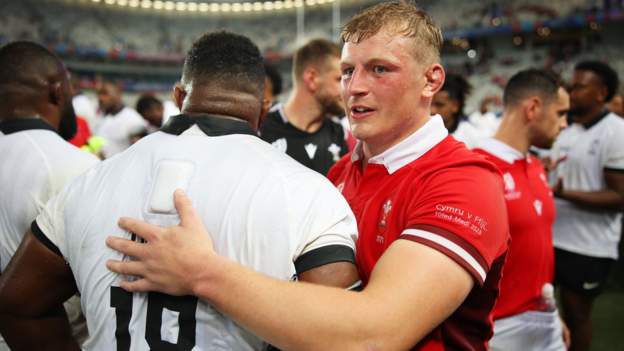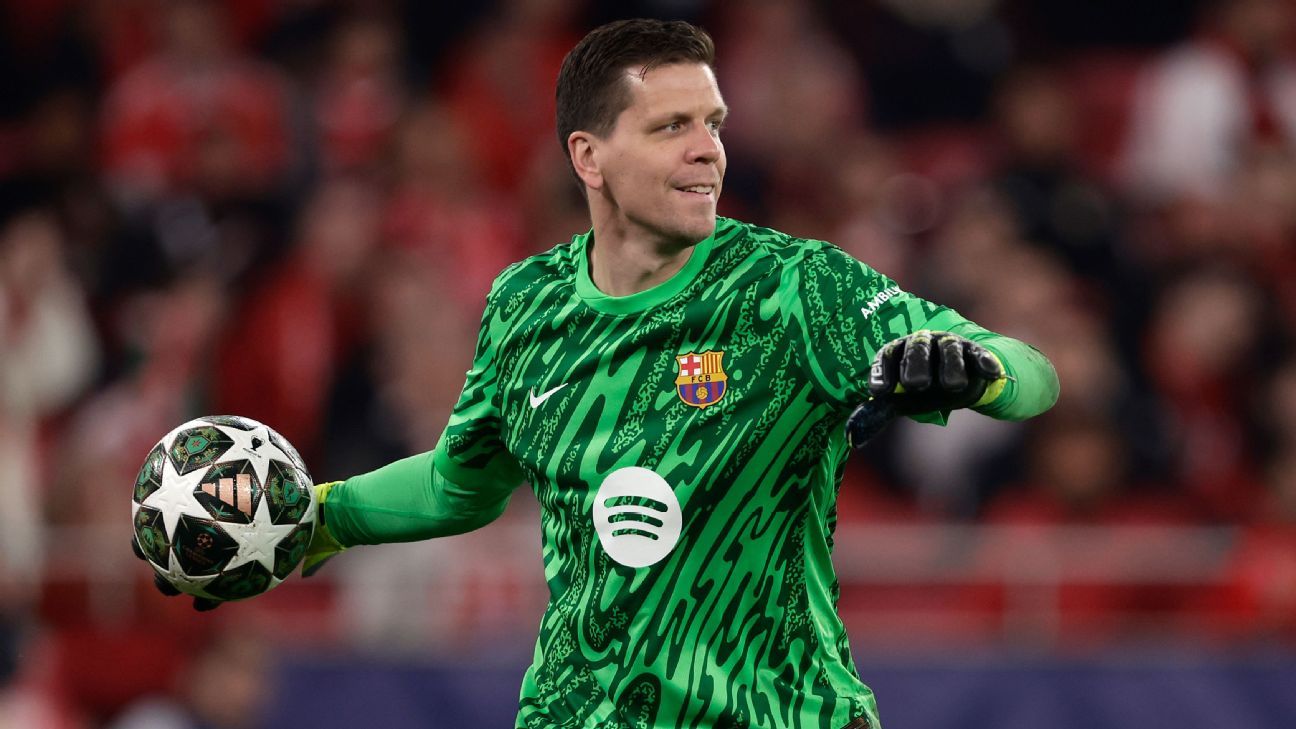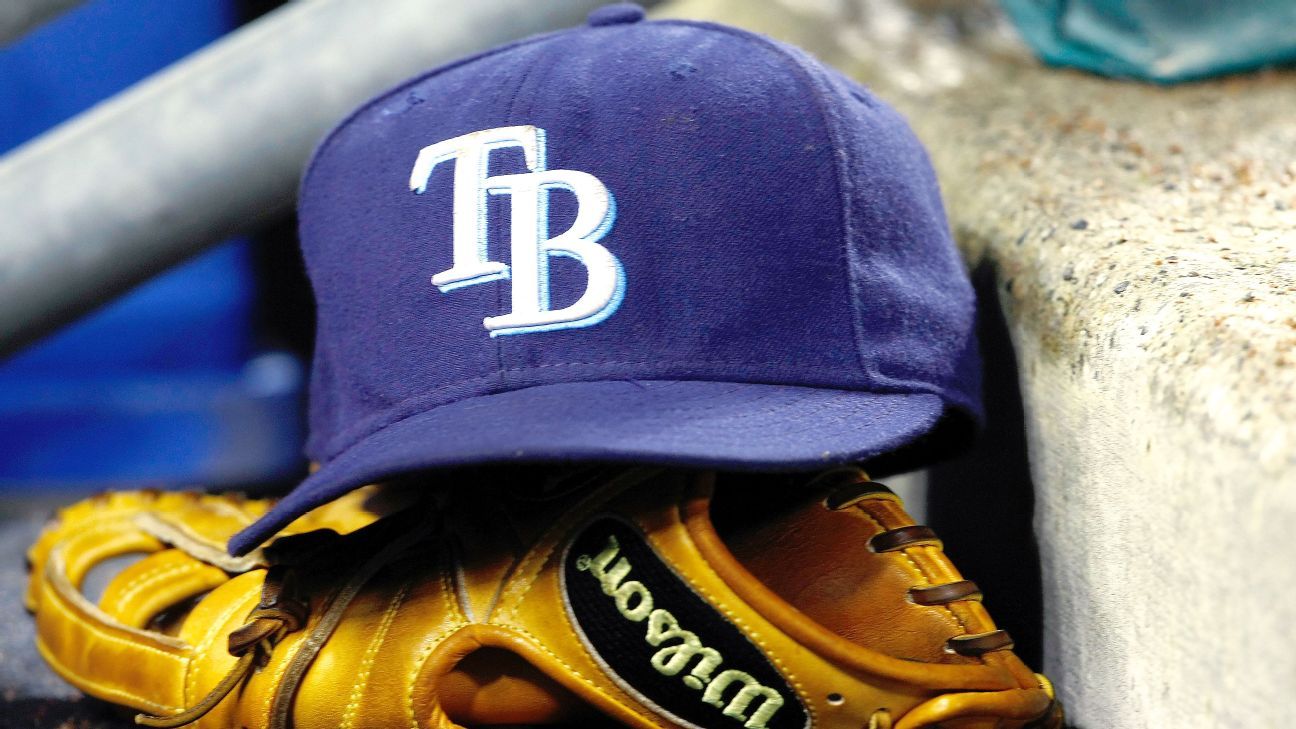Rugby World Cup 2023: Wales and Fiji produce night of drama in the battle of Bordeaux
Written by I Dig Sports
Not even the Wales and Fiji players could quite comprehend the stunning spectacle we witnessed in Stade de Bordeaux on a sweltering Sunday night.
"I don't think my vocabulary is good enough to describe that, I need to decompress and work out what that was like to play in," said Wales centre George North.
He was not the only one who needed to reassess a World Cup game for the ages.
It ended up as a Wales bonus-point victory but could easily have ended up being the same result for the opposition, following a late Fiji fightback from 32-14 down to 32-26.
The collective noise at Stade de Bordeaux, as Fiji centre Semi Radradra dropped the ball with the Wales tryline at his mercy in the final play of the game, will live long in the memory of everybody in attendance.
The final whistle brought a moment of reflection from the captivated crowd before a thundering and deserved round of applause rang around the stadium for both sides.
Eight tries and 58 points were shared in this battle of Bordeaux that did not end until after 11pm local time. It evoked memories of the 38-34 epic Fiji victory that dumped Wales out of the 2007 World Cup in Nantes. Just a different victor emerged on this occasion.
As thousands of Wales fans celebrated across the city long into the early hours of Monday morning in the bars of Bordeaux, there was plenty to digest.
Morning after the night before
Head coach Warren Gatland had talked about the significance of the victory immediately after the game. His thoughts were echoed by forwards coach Jonathan Humphreys on Monday morning, with not much sleep had in the Wales camp as the adrenaline still flowed.
"That game was massive for us," said Humphreys.
"I don't think many people probably gave us a shot at that game, but we had a belief.
"We had worked extremely hard. We knew to an extent what Fiji were going to bring, but it is still so hard to stop them. Their footwork is so late and good, so we knew it was going to be an unbelievably tough game.
"But to get through it with a bonus point is massive. It was a hell of a relief at the end."
Defensive heroics
The statistics will tell you Fiji should have won. They held the upper hand in territory and possession and missed out on three potential tries despite being over the Wales line.
Wales produced a staggering World Cup record of 253 tackles in the game compared with Fiji's 70. The initial figure was 248 but eventually rounded up.
Fiji made 1,106 metres in attack, more than double what Wales achieved.
Defence guru Mike Forshaw would have been pleased, with Humphreys identifying fitness camps in Switzerland and Turkey as contributing to the efforts.
"He's [Forshaw] extremely proud of the boys," said Humphreys.
"It's also the conditioning element. You can't make that many tackles if you are not fit and have the ability to get up and go again. The mindset and fitness was excellent."
There were notable thunderous tackles but the headline bone-crunching hit came from wing Josh Adams on opposite number Selestino Ravutaumada which lifted his team, the stadium and the Welsh nation.
"It was a massive moment," said Humphreys.
"That energised everyone off the back of it. It was a huge hit, the stadium felt that, and it lifted us as a group."
Lock Will Rowlands also made 27 tackles in a monumental rearguard resistance.
"He was excellent," said Humphreys.
"We've missed him after he dislocated his shoulder last autumn. He is an exceptional athlete. It's very rare you get such a big man with such a big engine.
"He has turned into a very important player for us and is brilliant around the group."
There were memorable attacking moments from Wales, most notably Dan Biggar's banana 50:22 kick, an audacious one-handed Liam Williams' scoop pass and the unlikely clever cross-chip from captain Jac Morgan to set up the Louis Rees-Zammit try.
It is the startling defence statistics, though, that will be remembered more vividly.
'Dumb decisions'
It was not all positive. When man-of-the-match Dan Biggar walked gingerly off the field after straining every sinew to kick a final conversion, Wales led 32-14 with 15 minutes remaining. It appeared job done and the bonus-point win secured.
That was before the frantic Fiji fightback with two late tries from Josua Tuisova and Mesake Doge before Radrada's late gilt-edged chance was spurned.
Wales have thrown away winning leads in the past couple of years and it looked like history might be repeating itself.
Gatland had bemoaned Wales' game management when they somehow lost to England in a World Cup warm-up game in August despite facing opposition who were down to 12 men at one point.
His frustration was again evident in France but he was grateful this time the result was different.
"We just made some dumb decisions," said Gatland.
"There were periods where we were excellent and saw all the hard work we have put in, and then there were times when you're in control and it's about man-management.
"I go back four or five years ago. We had been through this process where the team was growing and it took us time to comfortably implement the game management and understanding, players not giving away stupid penalties and putting us under pressure.
"Against Fiji there were incidents of that. It's making sure we're honest and learn from those situations."
Discipline dilemma
Wales conceded 17 penalties compared with Fiji's nine but both sides only received one yellow card apiece, prompting social media criticism of English referee Matthew Carley.
Fiji flanker Lekima Tagitagivalu was sent to the sin-bin for a cynical offence in pulling down a Wales rolling maul careering towards the line.
Wales replacement prop Corey Domachowski was shown a yellow card for a professional foul as the penalty count grew.
There were numerous transgressions by Wales in the second half as they struggled with the Fijian onslaught but Carley did not issue any extra punishment.
Gatland was non-plussed when asked whether he thought Wales should have been handed more than one yellow card.
"You can write about that," said Gatland.
"There were a few penalties and Corey's one [yellow card] was reasonable.
"We felt there were a couple of situations where there were players on their feet, some tight offside calls that we need to look at and review. If you think we were fortunate, then that's fine."
Fiji coach Simon Raiwalui and captain Waisea Nayacalevu were diplomatic when asked about the decision-making of the referee. Teams were warned by World Rugby before the tournament started about criticising match officials.
But when Raiwalui was saying the right things about the officials, Nayacalevu's expressive facial reactions demonstrated perhaps what Fiji really thought.
Gameplan questions raised
At times, Wales executed the blueprint in how to beat Fiji, especially in the opening 10 minutes and during periods of the second and third quarters of the match.
On other occasions, they were loose with Biggar shouting twice at North as Wales attempted to run from their 22 rather than kicking the ball down field.
Humphreys insists they were looking for the right balance.
"We wanted high ball in play, that was a big one for us," said Humphreys.
"Throwing the ball about in your 22, and a greasy ball, is not necessarily what we actually planned for. We talk about heads-up rugby, and if it is on, we will go.
"There were probably a few times in that first half we could have perhaps taken a different option. It is within our scope to play what's in front of you but there were a couple of times there, maybe not."
Pool C conundrum
Fiji took two losing bonus points from the game, which might prove critical in terms of the group's finishing places and race for a last-eight spot.
The Fijians face Australia in Saint-Etienne on 17 September in a match that could still define which two sides achieve quarter-final qualification from Pool C.
A day earlier, Wales will be in Nice when they face Portugal before further group games against Australia in Lyon on 24 September and Georgia in Nantes 13 days later.
Portugal were surprise qualifiers and after the bruising battle against the ferocious Fijians, we wait to see whether Gatland makes sweeping changes in the six-day turnaround.
Wales were not perfect against Fiji and maybe they rode their luck at the end but victory was all that mattered.
It means Gatland's side can move towards the French Riviera more confident of again achieving World Cup knockout rugby.















 Phone: (800) 737. 6040
Phone: (800) 737. 6040 Fax: (800) 825 5558
Fax: (800) 825 5558 Website:
Website:  Email:
Email: 






